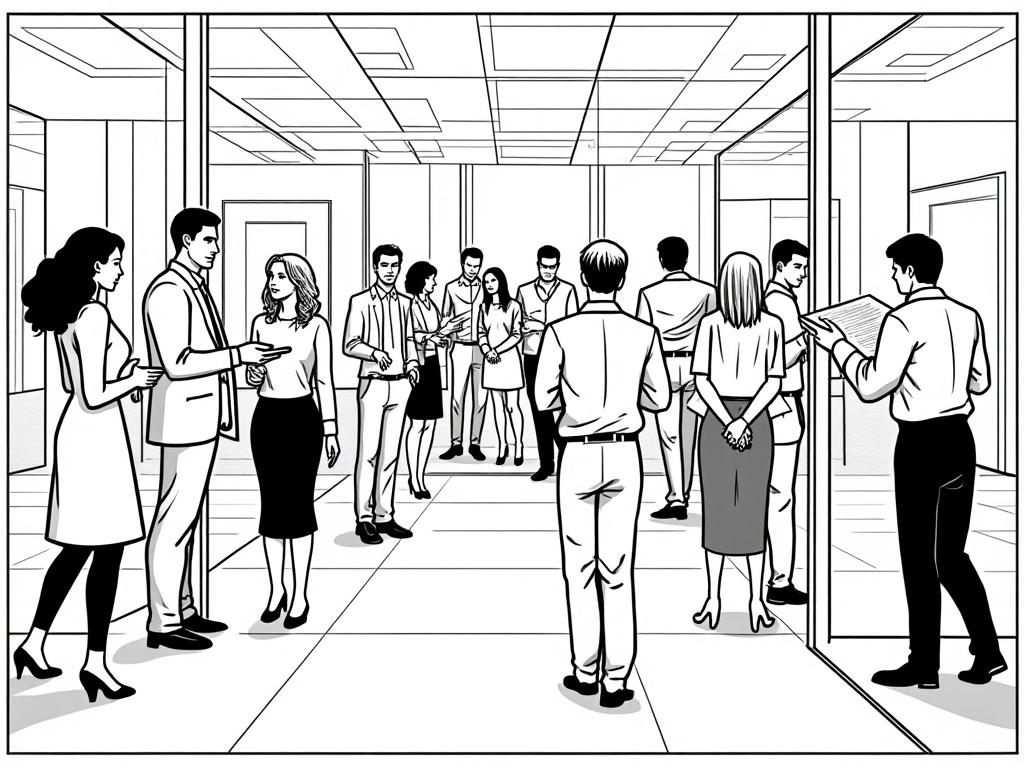UAE Job Offer Letters: What to Look For

UAE Job Offer Letters: What to Look For
Reading time: 8 minutes
Ever received a job offer letter in the UAE and wondered if you’re getting the full picture? You’re not alone. Navigating UAE employment offers requires more than just excitement—it demands strategic scrutiny.
Here’s the straight talk: A well-crafted job offer letter isn’t just paperwork—it’s your professional roadmap and legal protection in one of the world’s most dynamic job markets.
Table of Contents
- Understanding UAE Employment Letter Basics
- Essential Components Every Offer Should Include
- Salary Structure and Benefits Breakdown
- Red Flags That Should Concern You
- Smart Negotiation Strategies
- Understanding Your Legal Protections
- Your Employment Success Roadmap
- Frequently Asked Questions
Understanding UAE Employment Letter Basics
The UAE job market operates under unique dynamics that make offer letter evaluation crucial. With over 200 nationalities working across the Emirates, employment standards vary significantly between sectors and companies.
Quick Scenario: Imagine you’re a marketing professional receiving two offers—one from a multinational corporation in Dubai, another from a local startup in Abu Dhabi. The difference in offer letter quality could impact your career trajectory for years.
The Legal Framework
UAE employment law requires specific elements in job offers, governed by Federal Decree Law No. 33 of 2021. Companies must provide clear terms regarding:
- Contract duration: Limited or unlimited term specifications
- Probation periods: Maximum 6 months for most positions
- Working hours: Standard 8 hours daily, 48 hours weekly
- Leave entitlements: Minimum 30 calendar days annually
Cultural Considerations
Understanding cultural nuances helps decode offer letters effectively. UAE companies often emphasize benefits that reflect local lifestyle expectations—housing allowances, education support, and family visa provisions feature prominently.
Essential Components Every Offer Should Include
A comprehensive UAE job offer letter should contain specific elements that protect both employer and employee interests. Let’s examine what separates professional offers from potentially problematic ones.
Core Employment Details
Position Specification: Your job title should align with UAE visa categories. Mismatched titles can create visa complications later. For instance, a “Marketing Specialist” designation might limit your professional growth compared to “Marketing Manager.”
Reporting Structure: Clear hierarchical relationships prevent workplace confusion and establish accountability lines. This becomes particularly important in matrix organizations common in UAE’s multinational environment.
Compensation Structure Breakdown
| Component | Typical Range | Tax Implications | Negotiability |
|---|---|---|---|
| Basic Salary | 60-70% of total package | Tax-free in UAE | Moderate |
| Housing Allowance | 20-30% of total package | Tax-free in UAE | High |
| Transportation | 5-10% of total package | Tax-free in UAE | High |
| Annual Bonus | 1-3 months salary | Tax-free in UAE | Low |
| End-of-Service Gratuity | 21 days per year (minimum) | Tax-free in UAE | None (legal requirement) |
Salary Structure and Benefits Breakdown
Understanding UAE compensation structures requires recognizing the unique tax-free advantage while appreciating how benefits substitute for social security systems available in other countries.
Beyond Base Salary: The Total Package Approach
Case Study: Sarah, a finance manager, received two offers with identical AED 15,000 monthly salaries. Company A offered a lump sum, while Company B structured it as AED 9,000 basic + AED 4,000 housing + AED 2,000 transport. Company B’s structure provided greater flexibility for savings and family visa applications.
This example illustrates why package structure matters beyond total value. Banks often require specific basic salary minimums for mortgage approvals, making salary breakdown crucial for long-term financial planning.
Healthcare and Insurance Provisions
UAE law mandates employer-provided health insurance, but coverage quality varies dramatically. Premium packages include:
- International coverage: Essential for frequent travelers
- Family inclusion: Covers spouse and children
- Dental and optical: Often excluded from basic plans
- Maternity coverage: Critical for family planning
Professional Development Investment
Forward-thinking UAE employers invest heavily in employee development. Look for specific mentions of:
Training budgets: Annual allocations ranging from AED 5,000-20,000 depending on seniority
Conference attendance: International exposure opportunities
Certification support: Professional qualification funding
Red Flags That Should Concern You
Recognizing problematic offer letters can save you from career disasters. Here are warning signs that demand immediate attention or negotiation.
Vague Contract Terms
Problem: Offers stating “competitive salary” or “attractive benefits” without specifics
Impact: Creates grounds for disputes and limits your negotiating power
Solution: Request detailed breakdown before accepting
Unrealistic Probation Conditions
UAE law limits probation periods to 6 months, with 3 months standard for most roles. Longer periods or harsh termination clauses during probation suggest employer inexperience with local regulations.
Salary Comparison Reality Check
UAE Salary Expectations by Experience Level
*Ranges vary significantly by industry, with oil & gas, finance, and technology typically offering premium packages
Smart Negotiation Strategies
Successful UAE offer negotiation requires understanding local business culture while maintaining professional assertiveness. The key lies in collaborative problem-solving rather than confrontational demands.
Timing Your Negotiations
Optimal Window: Between offer receipt and acceptance deadline, typically 7-14 days
Cultural Consideration: UAE business culture values relationship-building, so frame negotiations as mutual benefit discussions
High-Impact Negotiation Points
Case Study: Ahmed, an IT consultant, successfully negotiated his offer by researching market rates and presenting a detailed comparison. Instead of demanding salary increases, he requested flexible working arrangements and additional professional development budget, resulting in a 15% value increase without straining the employer’s budget.
Pro Tip: Focus on components that cost employers less but provide significant personal value—flexible hours, additional leave, or professional development opportunities often yield better results than pure salary negotiations.
Understanding Your Legal Protections
UAE employment law provides substantial protections when properly understood and implemented. Your offer letter should reflect these legal minimums while potentially exceeding them.
Statutory Requirements
Every legitimate UAE job offer must acknowledge:
- End-of-service gratuity: 21 days salary per year for first 5 years, 30 days thereafter
- Annual leave: 30 calendar days minimum, increasing to 45 days after 5 years
- Sick leave: 90 days per year (unpaid after 15 days)
- Maternity leave: 60 days fully paid
Dispute Resolution Mechanisms
Strong offer letters include clear dispute resolution procedures, typically involving internal grievance processes before external arbitration. This protects both parties while ensuring fair treatment.
Your Employment Success Roadmap
Transforming offer letter evaluation from anxiety-inducing task to strategic advantage requires systematic approach and cultural intelligence.
Immediate Action Steps
1. Document Everything: Create a comparison spreadsheet for multiple offers, including non-monetary benefits
2. Verify Employer Legitimacy: Check company trade license, MOHRE registration, and employee reviews on platforms like Glassdoor
3. Calculate Real Value: Factor in UAE’s tax-free status when comparing international opportunities
4. Plan Your Transition: Consider visa processing times, housing arrangements, and family relocation needs
5. Build Your Network: Connect with current employees through LinkedIn to gain insider perspectives
Long-term Success Indicators
The best UAE job offers position you for sustained career growth within the region’s evolving economy. Look for companies investing in digital transformation, sustainability initiatives, and Emiratization programs—these factors signal long-term stability and advancement opportunities.
As the UAE continues positioning itself as a global business hub, your employment decisions today shape tomorrow’s career trajectory. The right offer letter isn’t just about immediate benefits—it’s about joining organizations that will thrive in the region’s next economic phase.
Ready to make your UAE career move with confidence? Remember, the best professionals don’t just accept offers—they strategically select opportunities that align with both personal goals and market evolution.
Frequently Asked Questions
Can I negotiate my UAE job offer after accepting it?
While possible, post-acceptance negotiations are significantly more challenging and may damage professional relationships. UAE business culture values commitment to agreements. If circumstances change dramatically, approach discussions professionally with valid justifications and focus on mutual benefits rather than personal needs alone.
What happens if my employer doesn’t honor the offer letter terms?
UAE labor law treats offer letters as preliminary employment contracts. If employers fail to honor stated terms, you have legal recourse through the Ministry of Human Resources and Emiratisation (MOHRE). Document all communications and seek legal advice for significant discrepancies. Most disputes resolve through mediation before reaching formal litigation.
Should I accept a UAE job offer with lower salary but better benefits?
Consider total compensation value including UAE’s tax-free advantage, career growth potential, and lifestyle benefits. Calculate the true cost of benefits like housing, healthcare, and education allowances. Often, seemingly lower-salary offers provide superior long-term value, especially when factoring in professional development opportunities and regional career advancement prospects.

Article reviewed by Sofia Conti, Art & Wine Investment Consultant | Passion Assets with ROI, on June 4, 2025
